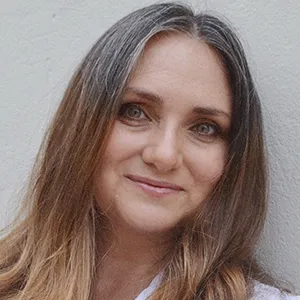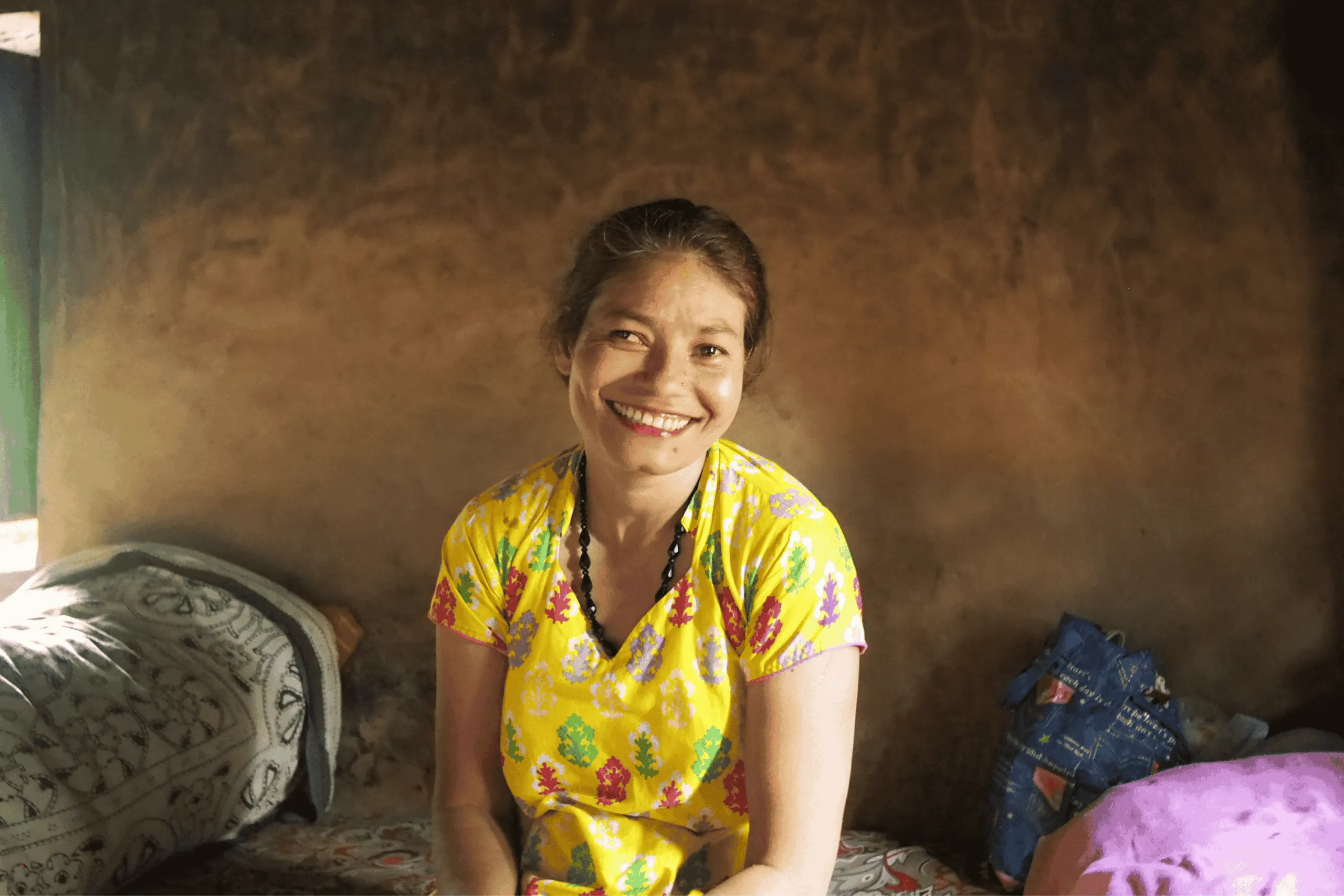Gita lives in Sunwal municipality in Nepal, with her child, who has a disability. When she joined a Self-Help Group, things began to shift. She never dreamed of becoming an entrepreneur—she just needed to find a way to survive, to feed her family, and to be something more than the sum of what others expected from her. And while Gita has faced more barriers than most, she’s kept going.
Slowly, the group became a source of recognition, not just income. It reminded her that she had something to offer. It gave her status in the eyes of others and opened the door to training, shared knowledge, and support.
Today, she’s part of a co-operative of just over 250 people. Her main income comes from making brooms, but she also has a hand in everything from weaving shawls to making detergents, bottling honey, and helping run a seed bank.
Many days, it still just feels like hard work. But it’s dignifying work—and it comes with the blessing of a community.
Every month, each woman in the co-op adds her share to the pool. The fund is used to provide loans, generate interest, and create dividends. There are even small returns from bank interest, shared among members at the end of each year.
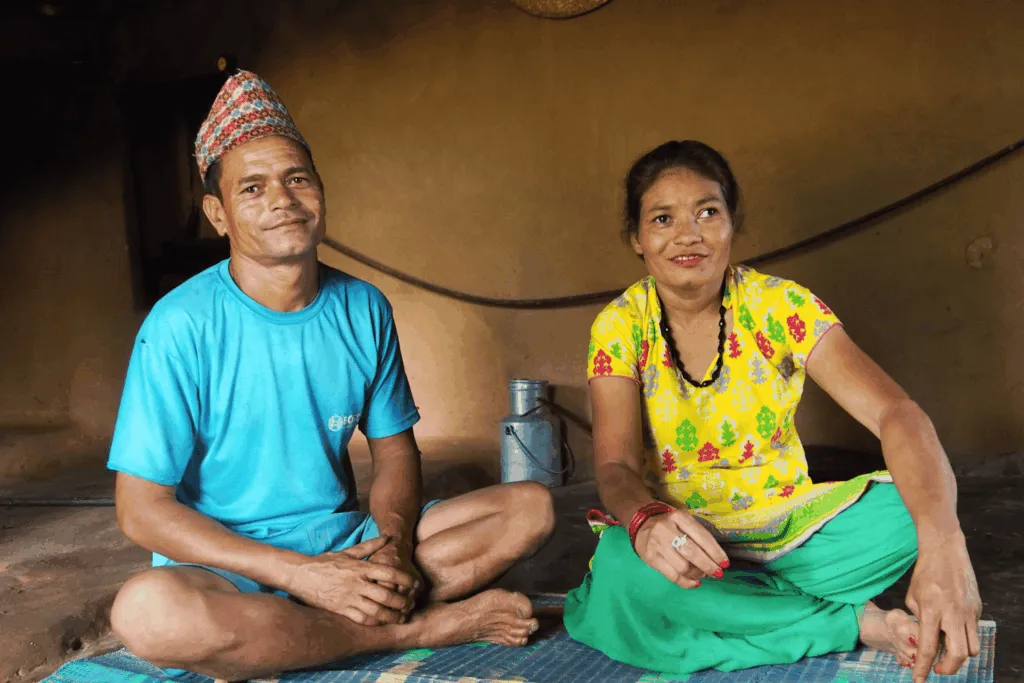
All of this is remarkable, given this is a cultural setting where marriage, belief systems, and deep-rooted gender roles often combine to limit women’s economic power. Even when women manage to generate income, they often don’t have control over how it’s used, especially if they’re married. And for women without husbands, the barriers are even higher.
For Gita, the co-op provides more than finance. It provides affirmation. It means her presence is part of something larger, and her contribution matters.
As the Self-Help Group grows, so too will its income, its influence, and its ability to impact the lives of more women. Gita’s seen other co-ops grow to 1,500 members and is eager to see hers do the same. But growth takes capital, and capital takes time to build in a community where every rupee is hard-earned and carefully shared.
Members contribute regularly. That’s how they access loans, build credit, and invest in shared projects. But it’s not easy. Groups like Gita’s are doing everything they can to responsibly and effectively strengthen their community—and Leprosy Mission Australia is proud to walk with them.
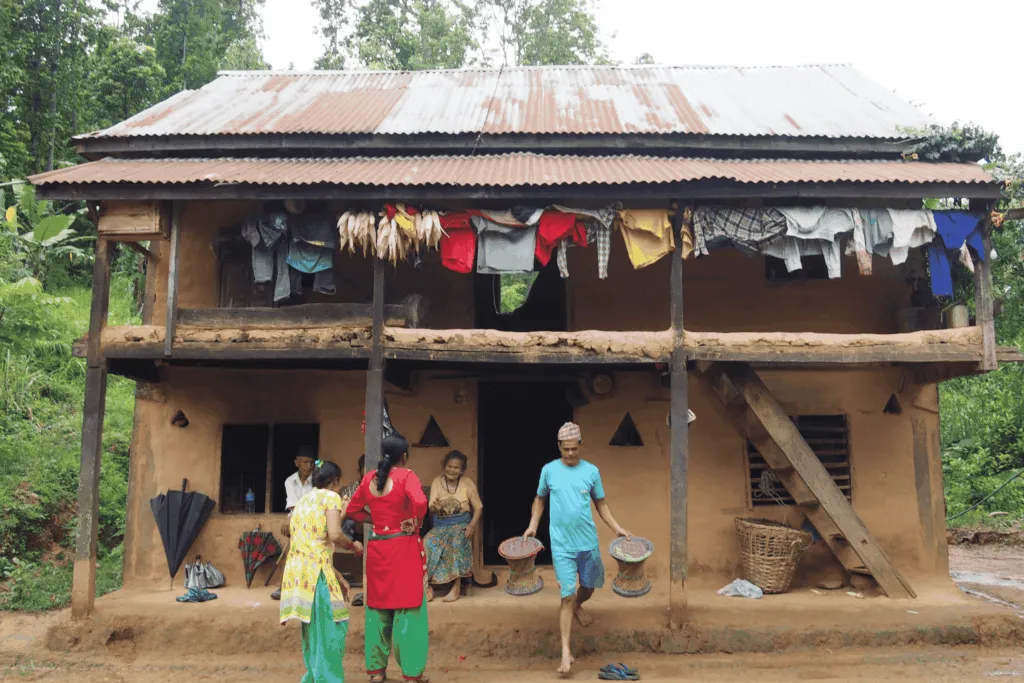
This EOFY, your tax-deductible gift will enable Self-Help Groups in Nepal and India to thrive.
Until June 30, your gift is matched 5:1. Your one act of generosity will ripple outward, creating streams of financial freedom for those who need it most.
Your donation will allow us to create 17 new Self-Help Groups—communities like Gita’s that foster dignity, skills, and real, shared success.
Self-Help Groups don’t only allow women like Gita to start a business—they shift the balance of power. Your gift isn’t a handout. It isn’t even just a hand up. It’s changemaking work that ensures women who have spent years on the margins have a place at the table.
It’s a way of telling women like Gita that their place in the story matters.
Give today here! Help Gita—and women like her—build something that lasts.
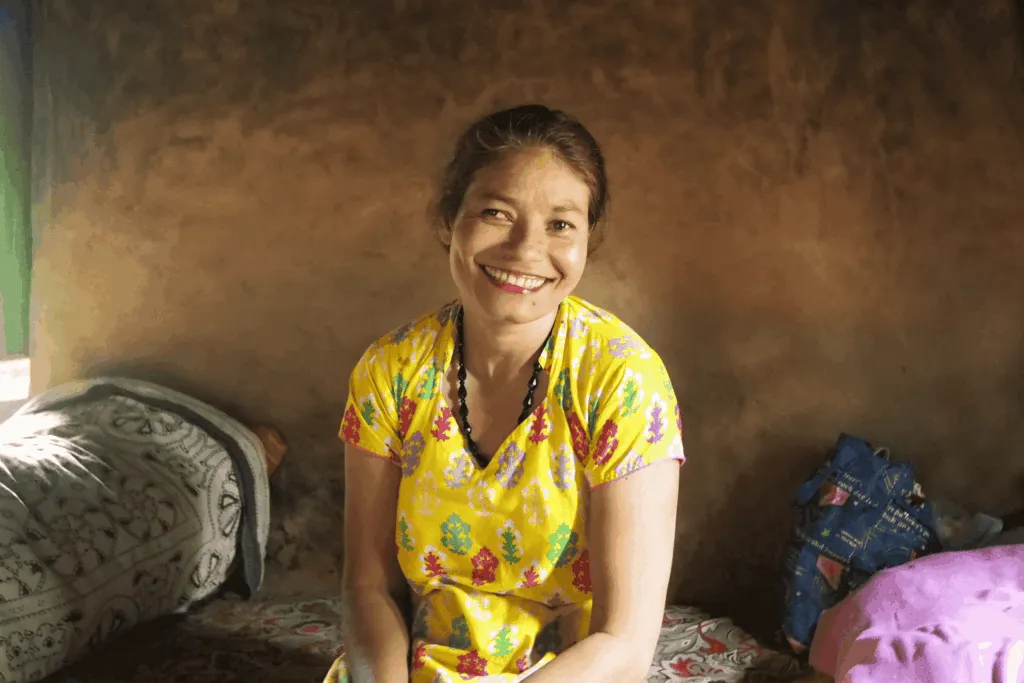
For more stories like this, you can browse our full collection here!
